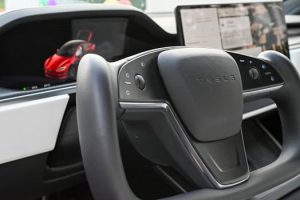Car Dealerships: What’s Next?
Car dealerships have been around for decades, providing a physical location for car shoppers to browse and purchase vehicles. However, in recent years, the automotive industry has seen significant changes and advancements. With the rise of technology and the shifting consumer behavior, car dealerships are now faced with the challenge of adapting and staying relevant. So, what’s next for car dealerships? Let’s take a closer look.
The Changing Landscape of Car Dealerships
The rise of online car buying and the availability of information at the fingertips of consumers have greatly impacted the traditional car dealership model. Today, customers are more informed and empowered than ever before. They can easily research and compare prices, features, and reviews of different cars, all without stepping foot inside a dealership. As a result, car dealerships need to evolve and offer something different to attract and retain customers.
Virtual and Augmented Reality
One of the ways car dealerships are stepping up their game is by utilizing virtual and augmented reality. This technology allows customers to experience a car’s features and even take a virtual test drive, all from the comfort of their home. This not only saves customers time and effort but also creates a more engaging and interactive experience.
Subscription-based Services
Another trend that has been gaining popularity in the automotive industry is subscription-based services. Instead of purchasing a car outright, customers can now pay a monthly fee for access to different vehicles depending on their needs. This not only provides flexibility but also eliminates the hassle of long-term commitments and the burden of maintenance and upkeep costs.
Personalized Customer Experience
Car dealerships are also recognizing the importance of providing a personalized customer experience. With so many options and information available, customers are looking for more than just a good deal. They want a memorable and tailored experience that caters to their needs and preferences. This can include personalized test drives, customized financing options, and even concierge services that deliver the car directly to the customer’s doorstep.
The Role of Digital Marketing
In this digital age, it’s not enough for car dealerships to rely on traditional marketing tactics. To stay competitive, they need to have a strong online presence and a comprehensive digital marketing strategy. This includes having a user-friendly website, engaging social media presence, and utilizing search engine optimization (SEO) techniques to improve visibility and reach a wider audience.
The Power of Social Media
Social media has become a powerful tool for car dealerships to connect with potential customers and showcase their inventory. Platforms like Facebook and Instagram allow dealerships to target specific demographics and reach a larger audience at a fraction of the cost of traditional advertising. This also provides an avenue to build relationships with customers by responding to inquiries and providing helpful information.
The Importance of SEO
With the majority of car shoppers starting their search online, having a strong online presence is crucial. This is where SEO comes into play. By implementing SEO techniques, car dealerships can improve their website’s ranking in search engine results, making it easier for potential customers to find them. This can include tactics such as keyword optimization, local SEO, and creating valuable and informative content.
Embracing Technological Advancements
The automotive industry is constantly changing and evolving, and to stay relevant, car dealerships need to keep up with the latest technological advancements. This includes investing in tools and software that will streamline operations, improve customer experience, and drive sales.
CRM and Automation
Customer relationship management (CRM) systems and automation tools are becoming increasingly important in the automotive industry. These tools help dealerships to efficiently manage and track customer interactions, automate tasks, and personalize communication. By utilizing these tools, dealerships can streamline their processes and improve the overall customer experience.
Artificial Intelligence
The use of artificial intelligence (AI) is also gaining popularity in the automotive industry. With AI, dealerships can analyze customer data, predict buying behavior, and offer personalized recommendations. This can greatly enhance the customer experience and increase sales opportunities.
The Road Ahead
The future of car dealerships is undoubtedly influenced by technology and changing consumer behavior. By embracing these changes and implementing innovative strategies, car dealerships can stay ahead of the game and continue to provide a valuable and relevant service to their customers.
In conclusion, the key to success for car dealerships in the ever-changing automotive industry is to adapt to the changing landscape, embrace technology, and provide a personalized and engaging customer experience. By doing so, they can navigate the road ahead and remain a vital player in the industry for years to come.







